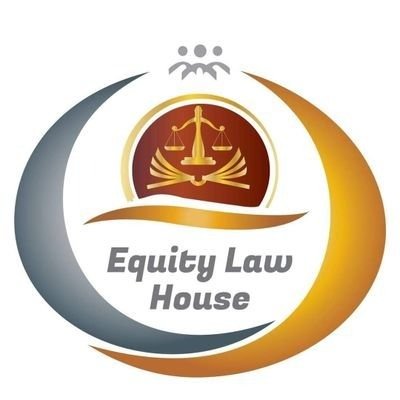Best Faith-Based Law Lawyers in Dhaka
Share your needs with us, get contacted by law firms.
Free. Takes 2 min.
List of the best lawyers in Dhaka, Bangladesh
About Faith-Based Law in Dhaka, Bangladesh
Faith-Based Law in Dhaka, Bangladesh, primarily refers to the legal framework that governs personal and family matters according to religious doctrines. These laws influence areas such as marriage, divorce, inheritance, and custody. Predominantly, Islamic laws are followed for the Muslim population, while specific personal laws apply to other religious communities, such as Hindu and Christian laws. These laws coexist with the secular legal system, creating a unique blend of religious and civil norms that govern personal affairs.
Why You May Need a Lawyer
There are several situations where individuals may require legal assistance in Faith-Based Law. Common scenarios include resolving disputes related to marriage and divorce under religious laws, inheritance distribution according to religious prescriptions, and issues of custody and guardianship in family matters. A lawyer can help interpret the intersection of religious and secular laws ensuring compliance while advocating for one's rights. Additionally, legal practitioners can provide guidance to navigate the complexities of multiple legal frameworks.
Local Laws Overview
Understanding the local laws is essential for anyone dealing with Faith-Based Law in Dhaka, Bangladesh. Islamic Family Law dictates numerous aspects of personal life for Muslims, covering marriage contracts, rights and duties within marriage, procedures for divorce (e.g., 'Talaq'), and shares of inheritance according to Sharia Law. For Hindu communities, the Hindu Marriage Act and the Hindu Inheritance (Removal of Disabilities) Act are crucial, while Christians follow the Christian Marriage Act among others. Each community's laws provide specific guidelines that coexist with national legislation to ensure all community members are protected under the law. It is vital to comprehend these nuanced legal standards to protect one's legal rights fully.
Frequently Asked Questions
1. What is Faith-Based Law?
Faith-Based Law refers to legal principles and regulations derived from religious doctrines used to oversee personal and familial issues among different religious communities, such as Muslims, Hindus, and Christians in Bangladesh.
2. How does Faith-Based Law interact with Bangladeshi secular law?
Faith-Based Laws primarily govern personal and family matters, while secular laws govern civil, criminal, and commercial aspects. Secular laws act as an overarching legal framework, while religious laws provide community-specific guidelines.
3. Can I choose to follow secular law over Faith-Based Law?
Individuals must follow personal laws pertinent to their religion, particularly for family and personal matters. However, civil matters are uniformly subject to secular laws, and conflict resolution sometimes resorts to secular courts.
4. What are common legal issues encountered under Faith-Based Law?
Legal issues often involve marriage contracts, divorce, dowry matters, inheritance disputes, and custody rights, where interpretation of religious provisions can vary.
5. How do inheritance laws differ across religions?
Each religion has distinct inheritance rules. For instance, Islamic probate laws involve fixed shares, while Hindu and Christian laws follow different doctrines, which are less codified in personal matters such as intestate succession.
6. What is the role of a lawyer in Faith-Based Law?
Lawyers specializing in Faith-Based Law help interpret the nuances of religious law, represent clients in legal proceedings, draft legal documents, and offer legal advice specific to their community's needs.
7. Are there differences in marriage registration requirements across religions?
Yes, marriage registration procedures vary significantly among religions. Each has designated marriage registrars and specific documentation requirements based on religious laws.
8. How does one handle disputes in religious law cases?
Disputes may first go through community or religious councils. However, formal legal disputes are settled through the Bangladeshi legal system, where religious principles are respected within personal law cases.
9. What should someone do if they are unaware of their rights under Faith-Based Law?
Consult with a legal expert specializing in Faith-Based Law for advice. Legal aid organizations and advocacy groups can also provide valuable guidance.
10. Are decisions made under Faith-Based Law enforceable in secular courts?
Yes, decisions, particularly in family law cases adhering to religious principles, are enforceable in secular courts as long as they conform to national legal standards.
Additional Resources
For further assistance and legal advice in Faith-Based Law, consider reaching out to the Ministry of Law, Justice and Parliamentary Affairs, Bangladesh Supreme Court legal services, and community-specific organizations like the Islamic Foundation, Hindu Religious Welfare Trust, or Christian Marriage Registrars.
Next Steps
If you need legal assistance in Faith-Based Law in Dhaka, it is recommended to first understand the specific laws that pertain to your community. Research and contact qualified legal professionals experienced in handling cases concerning Faith-Based Law. Document all relevant personal legal issues and seek preliminary consultations to better understand your rights and responsibilities. Engaging with community legal aid services may also provide affordable options for those in need.
Lawzana helps you find the best lawyers and law firms in Dhaka through a curated and pre-screened list of qualified legal professionals. Our platform offers rankings and detailed profiles of attorneys and law firms, allowing you to compare based on practice areas, including Faith-Based Law, experience, and client feedback.
Each profile includes a description of the firm's areas of practice, client reviews, team members and partners, year of establishment, spoken languages, office locations, contact information, social media presence, and any published articles or resources. Most firms on our platform speak English and are experienced in both local and international legal matters.
Get a quote from top-rated law firms in Dhaka, Bangladesh — quickly, securely, and without unnecessary hassle.
Disclaimer:
The information provided on this page is for general informational purposes only and does not constitute legal advice. While we strive to ensure the accuracy and relevance of the content, legal information may change over time, and interpretations of the law can vary. You should always consult with a qualified legal professional for advice specific to your situation.
We disclaim all liability for actions taken or not taken based on the content of this page. If you believe any information is incorrect or outdated, please contact us, and we will review and update it where appropriate.

















